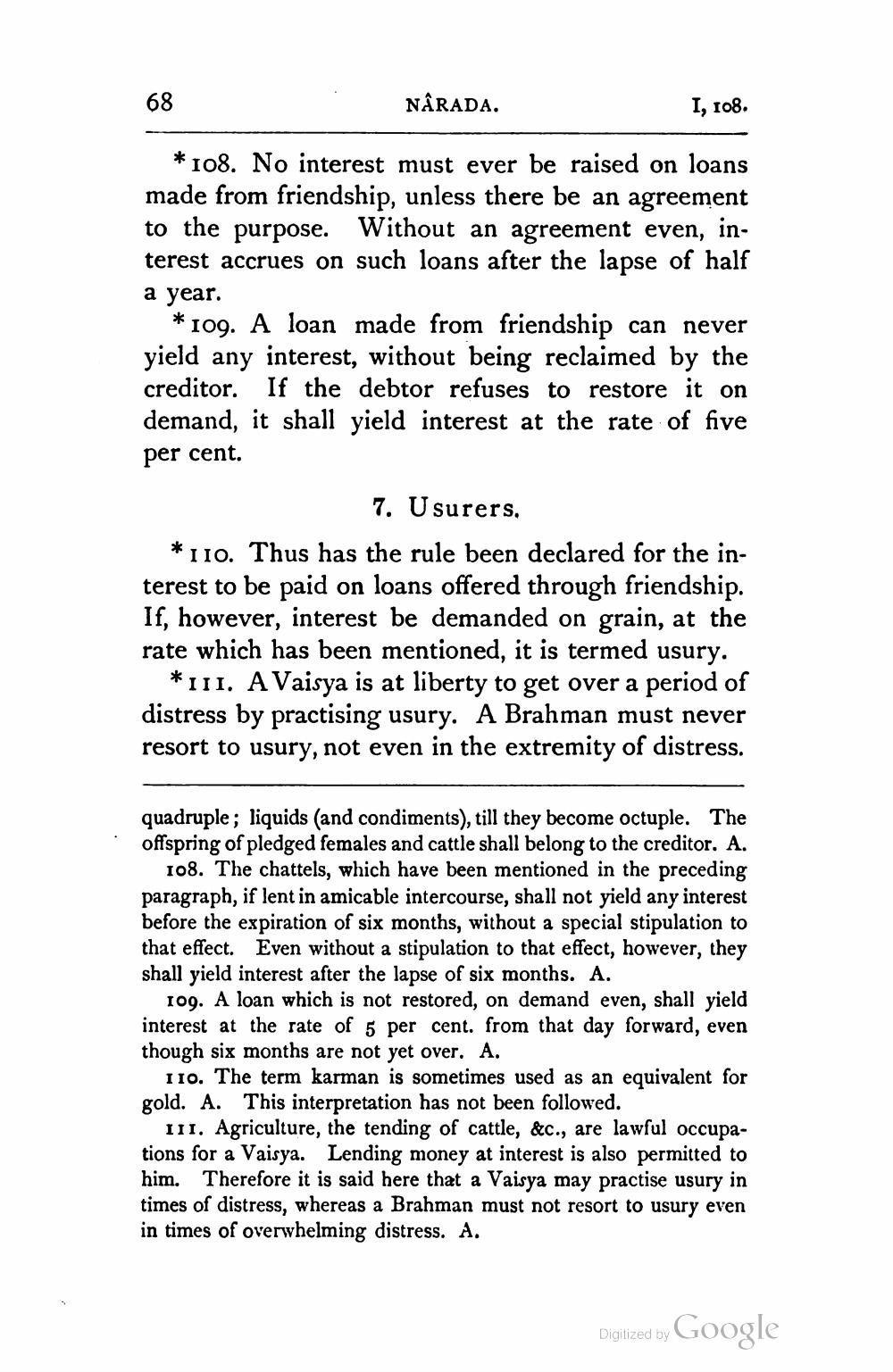________________
68
NÅRADA.
I, 108.
*108. No interest must ever be raised on loans made from friendship, unless there be an agreement to the purpose. Without an agreement even, interest accrues on such loans after the lapse of half a year.
*109. A loan made from friendship can never yield any interest, without being reclaimed by the creditor. If the debtor refuses to restore it on demand, it shall yield interest at the rate of five per cent.
7. Usurers. *110. Thus has the rule been declared for the interest to be paid on loans offered through friendship. If, however, interest be demanded on grain, at the rate which has been mentioned, it is termed usury.
*111. A Vaisya is at liberty to get over a period of distress by practising usury. A Brahman must never resort to usury, not even in the extremity of distress.
quadruple; liquids (and condiments), till they become octuple. The offspring of pledged females and cattle shall belong to the creditor, A.
108. The chattels, which have been mentioned in the preceding paragraph, if lent in amicable intercourse, shall not yield any interest before the expiration of six months, without a special stipulation to that effect. Even without a stipulation to that effect, however, they shall yield interest after the lapse of six months. A.
109. A loan which is not restored, on demand even, shall yield interest at the rate of 5 per cent. from that day forward, even though six months are not yet over. A.
110. The term karman is sometimes used as an equivalent for gold. A. This interpretation has not been followed.
111. Agriculture, the tending of cattle, &c., are lawful occupations for a Vaisya. Lending money at interest is also permitted to him. Therefore it is said here that a Vaisya may practise usury in times of distress, whereas a Brahman must not resort to usury even in times of overwhelming distress. A.
Digitized by Google




